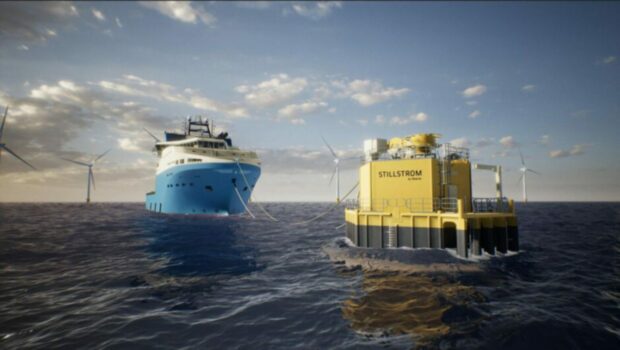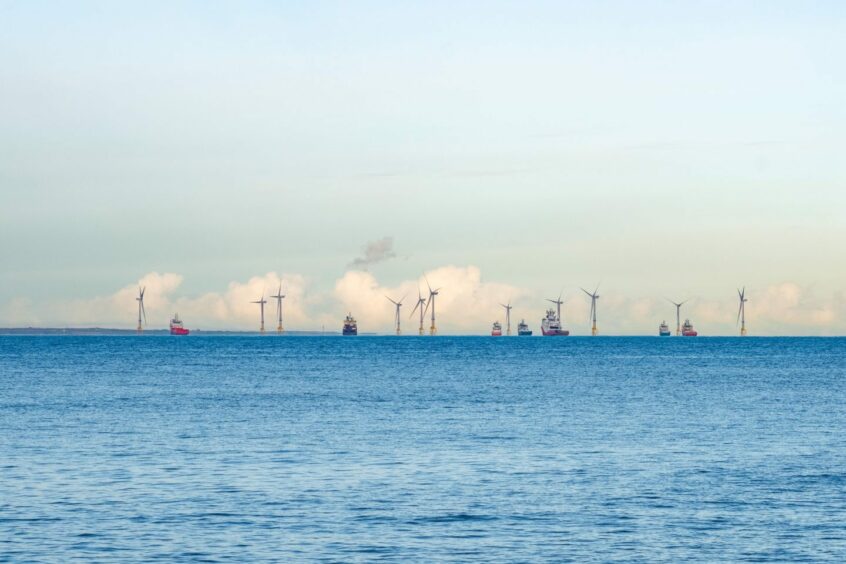Stillstrom and the Port of Aberdeen are considering the potential for an offshore charging hub at the harbour, which could help lower vessel emissions with a supply of low-carbon electricity.
Stillstrom is an offshore charging buoy concept developed by Maersk Supply Service, a unit of the global shipping giant.
The buoy acts as a safe mooring spot for vessels, while also providing a supply of renewable power, enabling ships to use electricity from either offshore wind or the onshore grid.
Buoy can be used to charge battery packs on ships with the technology
The system would eliminate the need to use fuel-powered systems while idling, lowering emissions for both vessel operators and the local environment.
Where applicable, the buoy can also be used to charge battery packs on ships fitted with the technology.
The study, which will run until the end of the year, aims to develop a roadmap for the potential introduction of the system at the Port of Aberdeen. Both companies will analyse the benefits, use cases and economics of installing the offshore charging system and also hope to source input from key stakeholders.
The company has already signed an agreement with wind developer Orsted to test a pilot buoy next year at one of Orsted’s wind farms in the North Sea. Here the prototype will supply power to the service operation vessels (SOVs) and crew transfer vessels (CTVs) operating at the offshore scheme.
Stillstrom says the concept could be relevant for a suite of users across the marine industries, from offshore renewables to idling vessels within ports and hubs.
The Port of Aberdeen is one of UK’s busiest such sites, with more than 6,000 vessels visiting and anchoring outside every year.
The trial also supports Aberdeen’s wider ‘Green Port’ strategy, which intends to explore a range of emissions reduction opportunities, including quayside electrification, the use of alternative fuels and lower carbon power supplies, as well as sustainable waste management.
Study will form ‘cornerstone’ of Stillstrom ports and hubs strategy
Stillstrom CEO Kristian Jorgensen said the study would form a “cornerstone” of the company’s ports and hubs strategy.
“Together with Port of Aberdeen as a close partner, we will be able to map and show the true value of utilising electricity for idling vessels – which we expect will not only support the journey towards a net-zero ocean economy and a better near coastal environment, but also an economically attractive solution for vessels owners to utilise,” he continued.
Offshore charging will help net zero goals
Port of Aberdeen chief executive Bob Sanguinetti, said innovative ideas such as this are “crucial” if the maritime industry is to successfully decarbonise.
“We look forward to working with Stillstrom to develop low carbon power supply and reduce emissions from vessels on standby outside our port.
Pioneering projects, like renewable offshore charging, will help to make our vision of becoming Scotland’s premier net zero port a reality,” he added.


Conversation